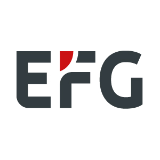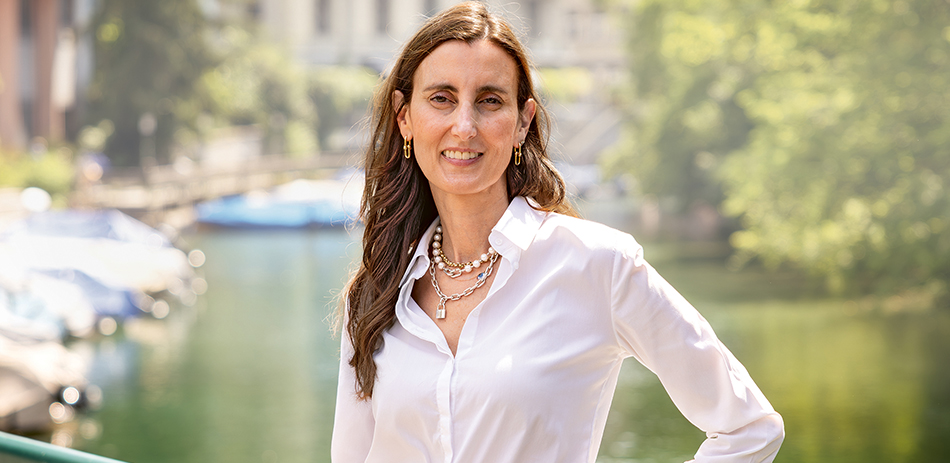What are your top three strategic HR priorities to ensure that EFG’s workforce remains fit for the future?
Our people are – and always will be – at the heart of EFG’s success. It is their hard work, skills and passion that drive our performance and culture. We have built our HR strategy around three pillars: Attracting top talent, developing our people, and engaging them. As a function, HR acts as a strategic partner to the business, contributing to the achievement of EFG’s objectives.
Looking ahead to 2030, where will your focus lie?
First, we want to equip our workforce for the future by investing in upskilling and continuous learning. This includes preparing our workforce to seize the opportunities created by AI while also being mindful of the challenges that this new technology can bring. We support the development of our people through the EFG Academy – our global learning hub.
Second, we are focused on robust succession planning and leadership development. Preparing our senior leaders and middle management to adapt, be agile, lead through change and empower their teams is one of our priorities as we look ahead to 2030. At the same time, we want to nurture the next generation of leaders and build a deep pool of talent.
Third, we see our culture as the foundation of our longterm success. HR’s role is also to champion EFG’s corporate values, which shape the way we work (see box). A strong culture aligns teams, energises performance and acts as the invisible engine behind every great result. This is why the ”human” in Human Resources is such a key driver of success.
AI is rapidly transforming many job profiles. How can you adapt EFG’s talent strategy to make sure the bank stays ahead of the curve in this fast-changing environment and has the skills and structures needed to remain successful in tomorrow’s world?
We view AI as a great asset when it comes to enhancing the way our people deliver value. Our focus is on redesigning roles and processes so that employees spend less time on repetitive tasks and more time on high-impact, client-focused work. To achieve this, we aim to embed AI literacy across the organisation, integrating it into everyday workflows rather than treating it as a standalone skill. We want to make sure leveraging intelligent systems becomes second nature, and helping our workforce to thrive in a tech-driven world is definitely one of our key priorities. At the same time, we need to exercise caution in the adoption of AI. Within HR, for example, we need to address concerns around its “dehumanising” effect on this very human-focused function.
By 2030, Gen Z and Millennials are projected to account for almost three-quarters of the global workforce. How will this demographic shift influence EFG’s recruitment and talent strategies?
Gen Z and Millennials are seeking purposeful, flexible and digitally enabled career experiences, and they are drawn to organisations that meet their values. At EFG, we want to ensure our employee value proposition takes all generations into account. For the younger generations, this includes continually enhancing development opportunities, offering flexible career paths and promoting a collaborative culture. Initiatives such as EFG’s Graduate Programme and our newly launched NextGen CRO Programme reinforce our attractiveness as an employer for this demographic, as do our university partnerships, scholarships and similar measures. I find it truly rewarding to witness young talent learn, grow and thrive at EFG and beyond.
Life expectancy and retirement ages are rising steadily. Do you expect to see an increase in the proportion of senior employees in your workforce?
Yes, we expect the proportion of senior employees at EFG to grow. We are convinced that a more age-diverse workforce brings significant advantages. Senior colleagues have vast experience and deep institutional knowledge that are vital for mentoring the next generation of “EFGers” and navigating complex situations. We view cross-generational collaboration as a key driver of learning and innovation.
As a follow-on question: How do you ensure that the expertise of the most seasoned professionals is actively passed on to young talents within the organisation?
Our Client Relationship Officers have a very entrepreneurial mindset and longstanding relationships with their clients. For many of them, it is natural to have more junior colleagues on their teams whom they can coach – sharing technical knowhow and more nuanced insights into our culture and client service standards. Meanwhile, younger colleagues contribute fresh perspectives and digital fluency. To reinforce cross-generational collaboration, we have established structured mentoring and knowledge transfer programmes.
Flexible working arrangements and employee wellbeing are critical drivers of talent retention and productivity. Which measures is EFG taking to provide flexibility and to foster employee engagement and development in a rapidly changing work environment?
A healthy work-life balance is essential for our people’s wellbeing. We recognise the pressures facing many employees as they seek to balance their professional and personal commitments. That is why we offer flexible working arrangements, including work-from-home options, to help employees adapt their schedules to their needs. Through our partnership with LinkedIn Learning, all employees can also access a broad range of training courses – including on topics such as stress management, wellbeing and mental fitness. And because we take the concerns of our employees seriously, we promote a speak-up culture within individual teams and regularly engage with our people, including through global employee surveys and town halls.
There is a lot of noise around the preferences and priorities of the younger generation. In your view, how have employees changed over the past 20 years?
That’s a great question! Over the past two decades, the way employees engage with work has fundamentally changed. Today, “face time” is less about being physically present and more about connecting through video, instant messaging and virtual collaboration tools. People now expect flexibility, regular feedback and open communication, whether they are in the office or working remotely. I am also seeing a stronger desire for personal development, wellbeing and a sense of purpose among employees. The shift to hybrid and digital-first work has made real-time, interactive communication the new norm.
The discourse on diversity, equity and inclusion (DEI) has seen some significant changes in the past year. What is EFG’s position on this?
At EFG, we have always grounded our HR practices in one principle: Merit. Every people decision we make, from recruitment to development to promotion, is guided by a commitment to hiring and developing the very best talent based solely on ability and potential. At the same time, we deeply believe in the power of fostering diverse talent – not as a checkbox exercise but as a strategic advantage. Diversity in backgrounds, perspectives and experiences enriches our thinking, drives innovation and strengthens our culture. While the global discourse around DEI has evolved significantly, our position remains consistent: We are fully committed to being an inclusive company. We want every person who joins EFG to feel they belong and can thrive here.
You have partnerships with several universities around the globe. Why do you consider it important to maintain strong ties to the world of academia – and how does this benefit the bank?
Maintaining strong partnerships with leading universities is a priority within our people strategy. We support outstanding talent from diverse backgrounds through our EFG Scholarships at renowned institutions such as the University of Zurich and the Swiss Federal Institute of Technology (ETH) Zurich, the École Polytechnique Fédérale de Lausanne (EPFL) and the University of Cambridge. We believe that our close ties to academia not only help us attract the next generation of financial leaders but enable us to stay abreast of the latest research and trends.
What do you see as the essence or “secret sauce” of EFG’s entrepreneurial culture?
Our strong position today as one of the leading Swiss private banks is the result of the hard work of our people. By all pulling in the same direction and focusing on our purpose “Empowering entrepreneurial minds to create value – today and for the future,” we have transformed EFG during a phase of
“I am very passionate about enabling people to unlock their full potential.”
significant growth and change. On this journey, our values have consistently guided us in how we work and have enabled us to bring the EFG spirit to life. I truly believe that our culture and values foster entrepreneurial thinking and leadership at every level: Everyone should feel empowered to bring ideas to the table.
You have held various leadership roles over the course of your career. What do you enjoy most about your work in HR?
I am very passionate about enabling people to unlock their full potential – and the HR function is the perfect platform for that. In HR, we focus on creating a work environment in which everyone can be the best version of themselves. For me, it was also very important to reposition HR as a trusted strategic partner to the business. After all, the people function is highly strategic, especially in a “people business” like private banking. For me, it is a true privilege to have been entrusted with this role. The dedication and strategic vision of my incredible team inspires me every day.
And a final question: Looking back, what was the biggest challenge you faced in your career and how did you overcome it?
Raising teenagers while leading HR can be quite a challenge sometimes - but joking aside, the most testing but also the most rewarding part of my career to date was reinventing myself so many times. Starting out as a corporate lawyer, I then became an investment banker and later a strategy and transformation executive before being appointed Global Head of HR & Chief People Officer. I think hard work was definitely the key to my successful “reinvention” (I can’t lie – it was not easy), together with my nerd-like willingness to learn, as well as my commitment to never giving up or accepting defeat. Most importantly, I have been fortunate to have had bosses who believed in me and always pushed me to go further. This is what inspires me in my leadership approach today. I want to motivate others to trust in their abilities, embrace change and achieve their ambitions.
This interview was published in the 2/2025 edition of EFG’s InTalks magazine.

